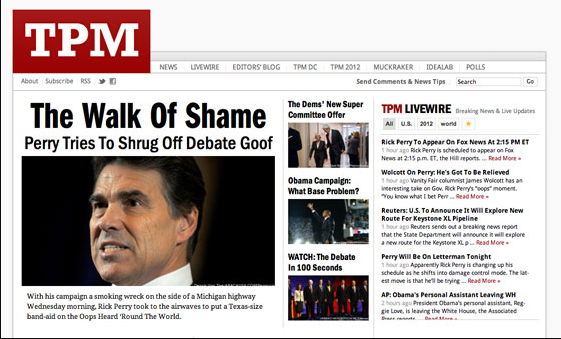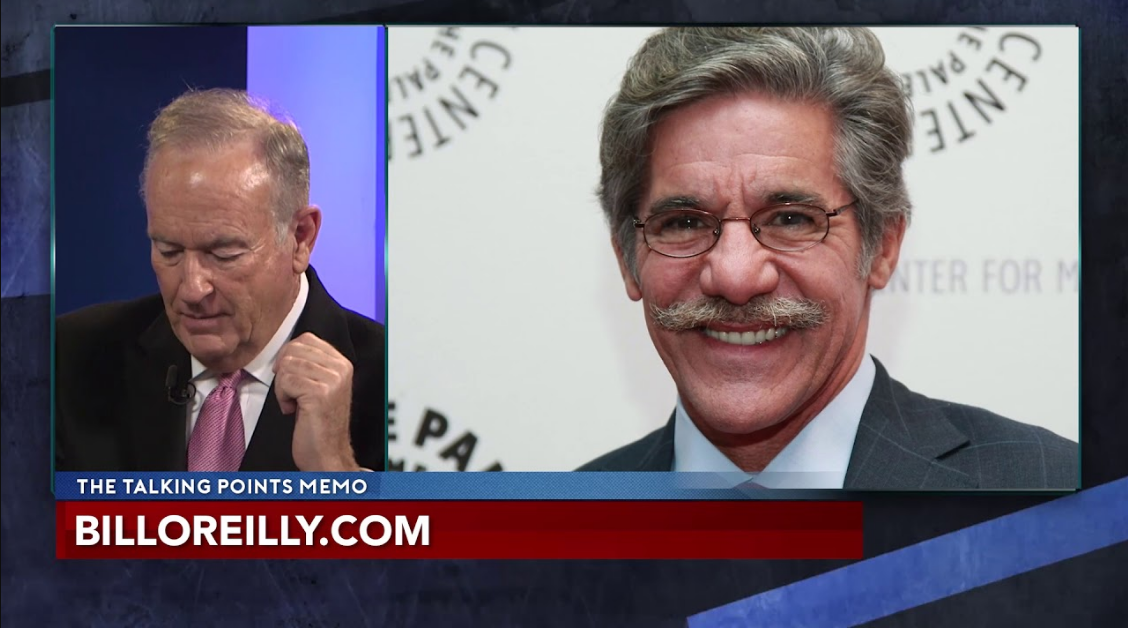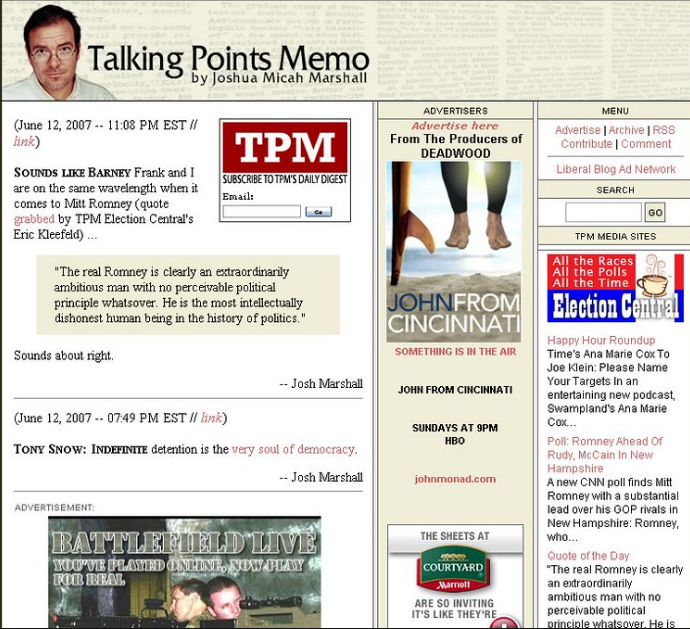What can we learn when we engage with others who have life experiences quite different from ourselves?
In recent years the landscape of political news has altered significantly. The days when political information was restricted to a few news networks and large national newspapers or magazines have long since passed. Today, newspapers and network TV compete with round-the-clock cable and various online news sources — from established online publishers to user-generated material on blogs, personal websites, social networking sites, etc.
Political news
Political news addicts might tailor their news using RSS feeds or news aggregators, update their themes in various forms at all intervals of the day, and offer their ideas to a personal blog or Twitter debate.
These modifications provoke a number of questions. What about Talking Points Memo politically committed people in a world with scattered media?
General media climate
What is the general media climate for alternative channels, such as Blogs? How do mobile devices, especially for consuming conventional media material, serve to collect political information? And when voters pass the lengthy threshold of media material, could they focus more closely on the stuff that suits their current political philosophy?
These and other problems are addressed in the next section.

Influence of online platforms on news consumption
Over the previous two presidential elections, the internet Talking Points Memo political news viewership has increased tremendously.
Since the end of the 2000 campaign, Americans have increased their proportions of news and information linked to elections. In 2008, six out of ten internet users went to campaign news online, up from 52% in 2004 and 33% in 2000. In addition, as the entire number of internet users increased over time, the general population of online news users grew from 18% of all adults in 2000 to 44% of all people now.
One-third of the news consumers visited online every day during the campaign for political news or information. For political statement, in the cohort that got online:
Twelve percent did this on several occasions every day. Twenty-one percent did it on a daily basis every day, twenty percent for three to five days a week.
Younger generations
Younger generations and those with relatively high incomes and education tend to get political and election news online, mainly because these groups are more likely to be online first. At the same time, it is also obvious that a wide variety of Internet users at least periodically go online to political content. For example, while the number of internet users among the elderly and non-college population is generally lower than the number of younger or higher students, in 2008, a third (32%) of the elderly online and almost half (45%) of the internet users with secondary education were or less involved in campaign news.
The Internet has become a major source of election news for the entire populace, spreading over the radio and competing newspapers.
The Internet now clearly outperforms radio and is on a level with newspapers, the primary source of news campaigns and elections among adolescents, for the first time since the Pew Internet Project started tracking American news consumption (including internet users and non-users). Now, 26% of all Americans receive most of their news from the Internet, virtually equal to the 28% who quote newspapers and twice as many as 13% who hear the radio.
News source
TV continues to be the most popular news source about elections, as 77% of Americans go with TV for their campaign information (respondents were allowed to provide up to two sources of campaign news when answering this question). Since November 2000, the amount of Internet reliant Americans has more than quadrupled (from 11% to 26%), while the share of news media relies on today has decreased from 39% to 28%.
When we look at Internet users in general and those with a household broadband connection, the effect of the Internet on news consumption patterns is particularly obvious. The Internet is the latest source of campaign Talking Points Memo news, only for TV and well ahead of newspapers, radio, and magazines, among the broadband population.
University degree or high earnings
People with a university degree or high earnings (with strong broadband uptake) may also mention the Internet as a primary source of election news. In comparison with 18% and three percent of those without secondary education, 41% of university students and 33% of those with college experience name the Internet as a primary source of campaign news.
Their key source for many contents is young adults, which keep moving away from TV and newspapers. The Internet—and election news is no different, even for a broader demographic. That is indeed accurate. The Internet is a key source of election news to all Americans (including Internet users and non-users) under 50 years old. A third (34%), compared to just 1 in 5 newspapers, mentions the Internet as a key news source of those of all persons in that age group. Likewise, whereas 83% of the age groups between 50 and 64 and 89% of those over 65 receive most TV news, this drops to 74% for the 30–49-year-old and 67% for the under 30 years.
Qualities of a Professional News source
Experts have examined extensively the factors that likely to produce fair and truthful coverage in a news source. The quantity and intricacy of the different traits may often be frightening. We recommend a brief list of items to take into account.
Solicitude machinery: Good news providers have important methods and resources to promote precision and error correction.
Transparency: good news sources explicitly identify opinion columns, declare conflicts of interest. It describe where and how the material was gathered in stories, and link to sources.
Competence: Good news sources rely on journalists who have been schooled in ethical journalism practices with reporting or field expertise. New authors are trained by the organization, where they have other skills.
Agenda: Informing readers, not electing Democrats, encouraging tax cuts will be the main purpose of the news source. It would help if you read authors with such activist goals certainly, but don’t accept them as “clean” news sources.
Here is a key tip: the final approach. In those you disagree with, it is simple to see prejudices and difficult to recognize prejudices. But prejudice is not a plan. The tendency is to view things, and what the news source is to do is the agenda.
political agenda
Any site that makes opinion columns explicit is less likely to be driven by the political agenda. Employs dozens of fact-checkers, hiring professional reporters and ensuring that they are honest about sources, procedures, and conflicts of interest. And this is true even if the reporters have a personal inclination. Good processes and news culture help reduce personal preference.
Yet you may perceive these things at a certain level and yet have doubts. If you do not solve the first three signs, you should think about the agenda. Is the source linked to the leadership of the political party? By Oil companies that are largely funded? Have the proprietors made remarks on their publication, and these are the goals of particular social. Political changes or the creation of a more educated audience?

Identifying Talking Points Memo trustworthy sources
We finish here by stating what makes a source untrustworthy so that you can detect it :
Some stuff is, as we all know, far from trustworthy. For all kinds of reasons, unreliable news information might be considered as such.
The majority of inaccurate news items is now known as “fake news.” But while some false news articles are entirely fabricated, others may contain simply specific components which are not factual. Some ‘fake news’ pieces may also not be purposely false. The writer may utilize a source he did not know to be untrustworthy or think his writing is true.
journalists
Naturally, all journalists need to be careful to report the Talking Points Memo incorrect information if their news source purposely gives them. You may want the source to make someone appear Healthcare System terrible by releasing a nasty report about them, or they may have fun with everything. Many sheriffs have throughout the years misled the media by creating insane accounts and fake proof. Only to see whether their stupid stories are published. Many journalists become embarrassed by writing a news report. They read on another site without realizing that it was a joke first.
Once again, we can’t stress enough:
individuals with political goals should read stuff. Their new diet is a crucial aspect. It is also the case that the persons with the highest knowledge occasionally work for organizations. Which aim to achieve social or political objectives. But when a fact or a figure is collected, the agenda can be inhibited. What if feasible, you’d like to locate a less agenda-led source.
Conclusion
Keeping the discussion above in mind, we can confidently say that the ‘Talking Points Memo’ is trustworthy. A reliable source of all of your news and political opinions. Providing a group of intellectual journalists at your service. Most of all, a forum for all of you to provide your ideas and take part in other threads.





